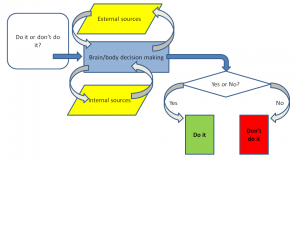Suppose the standard OmniGod exists: omnipotent, omniscient, and omnibenevolent.
Now suppose that Mary contracts a serious illness. Her family and friends pray for her health. This makes them feel better, and it also makes Mary feel better. The knowledge that others are praying for her may even affect her body in a way that contributes to her recovery.
The question is whether those prayers have any effect on God’s actions. Being an OmniGod, he will always do the right thing, without fail, regardless of whether anyone asks him to do so. How can prayer ever change what God does, if he always does the right thing in all circumstances?
In other words, is it ever possible that God is prepared to let Mary die, but decides to intervene simply because her family and friends pray for her recovery?
Theists out there: Do you believe in the power of intercessory prayer? If so, how do you resolve the problem described above? Ex-theists, I’m also interested in hearing about how you dealt with the problem back when you were still among the flock.

